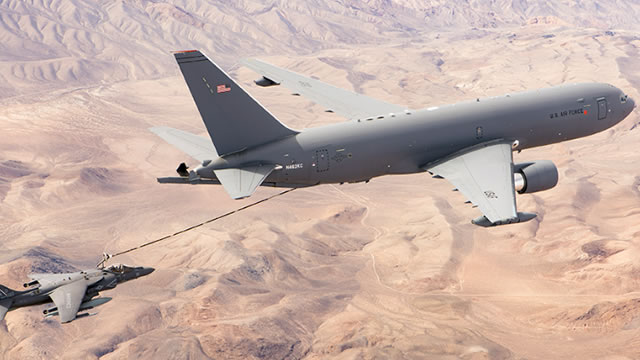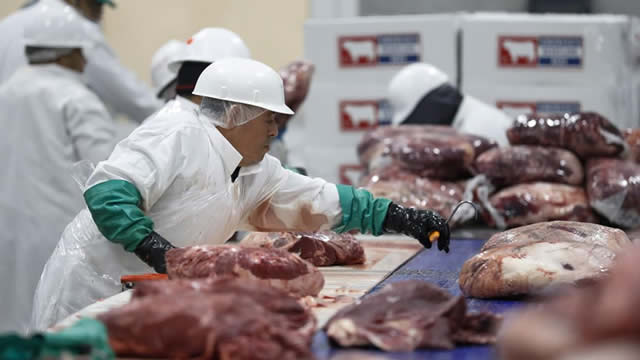The Impact of President Trump’s Tariffs on Boeing: A Detailed Analysis
President Trump’s decision to impose tariffs on imports from Canada, Mexico, and China has raised concerns among businesses that could be negatively affected by these protective measures. One such company is Boeing, the world’s largest aerospace and defense firm, which relies heavily on international trade.
Boeing’s Exposure to Tariffs
Boeing is a major exporter, with approximately 80% of its commercial airplane sales going to customers outside the United States. According to a report by the Pacific Northwest Economic Region (PNWER), tariffs on Boeing’s exports could increase the company’s costs and reduce its sales, particularly in the Canadian and Mexican markets.
Negative Consequences for Consumers and Employees
Tariffs generally harm consumers by raising prices. In the case of Boeing, the increased costs could be passed on to buyers, making its aircraft more expensive. Furthermore, companies may cut production or shift it to other countries to avoid tariffs, potentially leading to job losses.
Countermeasures and the Impact on Boeing’s Turnaround Efforts
Boeing also faces risks from potential countermeasures by the affected countries. For instance, Canada and Mexico could retaliate with tariffs on U.S.-made goods, including Boeing planes. Such actions could lead to lost sales for Boeing and higher production costs, affecting its turnaround efforts.
Personal Implications
As a consumer, you might face higher prices for airline tickets due to the tariffs. Boeing’s increased costs could be passed on to airlines, which might choose to absorb some of the added expense but ultimately pass the rest on to you. Additionally, potential job losses in the aerospace industry could result in a ripple effect, impacting industries and communities that rely on Boeing’s business.
Global Consequences
The broader implications of the tariffs on Boeing extend beyond the company itself. The international aerospace industry could experience reduced competition and slower growth, as Boeing and its European rival Airbus might consolidate their positions in their respective markets. Furthermore, suppliers to Boeing and other affected industries could also suffer, potentially leading to a slowdown in economic activity.
Conclusion
President Trump’s tariffs on imports from Canada, Mexico, and China could significantly impact Boeing, a major exporter, by increasing costs and reducing sales. Consumers might face higher prices for airline tickets, and potential job losses could ripple through industries and communities. The broader implications include reduced competition and slower growth in the international aerospace industry, as well as potential economic slowdowns for Boeing’s suppliers.
- Boeing is heavily reliant on international trade, with 80% of its commercial airplane sales going to customers outside the U.S.
- Tariffs could increase Boeing’s costs and reduce sales, particularly in the Canadian and Mexican markets.
- Consumers might face higher prices for airline tickets due to the tariffs.
- Job losses in the aerospace industry could have ripple effects on related industries and communities.
- Countermeasures by the affected countries could lead to lost sales and higher production costs for Boeing.
- The international aerospace industry could experience reduced competition and slower growth.
- Boeing’s suppliers could also suffer, potentially leading to a slowdown in economic activity.





